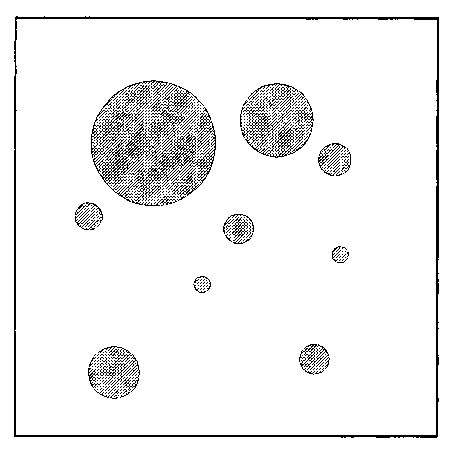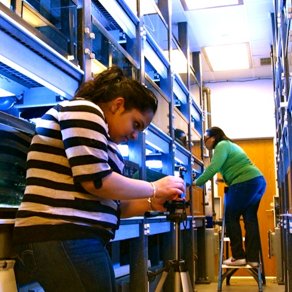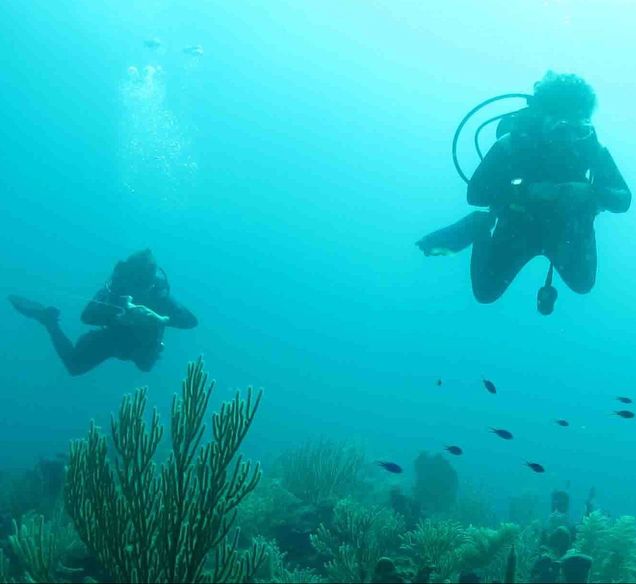Integration of Research and Education
Developing a Flipped Course in Metapopulation Ecology
 In 2019, we developed a flipped course in Metapopulation Ecology for the BU Hub, drawing heavily on our NSF funded work on population connectivity. The course is pitched at the graduate level, but also accommodates well-prepared juniors and seniors, and serves up to 30 students per year. The principle objective of the course is to familiarize students with the concepts of metapopulation ecology, considering marine ecology, terrestrial ecology, and theoretical ecology perspectives. The course fulfills writing intensive, oral communication, and research and information literacy Hub Learning Outcomes at BU. The syllabus is freely available to the community here.
In 2019, we developed a flipped course in Metapopulation Ecology for the BU Hub, drawing heavily on our NSF funded work on population connectivity. The course is pitched at the graduate level, but also accommodates well-prepared juniors and seniors, and serves up to 30 students per year. The principle objective of the course is to familiarize students with the concepts of metapopulation ecology, considering marine ecology, terrestrial ecology, and theoretical ecology perspectives. The course fulfills writing intensive, oral communication, and research and information literacy Hub Learning Outcomes at BU. The syllabus is freely available to the community here.
Including Undergraduate Students in Research Activities Over the last 10 years, we have mentored 30 undergraduate students from a diversity of backgrounds. We have well-defined three-year mentoring plan for these students: as sophomores, they learn to maintain the saltwater aquarium system and take care of the fish, through hands on experience working with the lab manager; as juniors, they design their own research projects, and receive peer-peer mentoring; as seniors, they execute and write-up their own research project, and give peer-peer mentoring. Several of these projects have been published (1,2,3,4,5,6). You can read more about the students’ experiences in the Buston Lab on their blog here.
Over the last 10 years, we have mentored 30 undergraduate students from a diversity of backgrounds. We have well-defined three-year mentoring plan for these students: as sophomores, they learn to maintain the saltwater aquarium system and take care of the fish, through hands on experience working with the lab manager; as juniors, they design their own research projects, and receive peer-peer mentoring; as seniors, they execute and write-up their own research project, and give peer-peer mentoring. Several of these projects have been published (1,2,3,4,5,6). You can read more about the students’ experiences in the Buston Lab on their blog here.
Including Graduate Students in Research Activities
 Over the last 10 years, I have served as a the primary mentor for 6 PhD students. When I take on a PhD student, I do so with the goal of helping them develop their own independent line of research and kick start their own career. I train students in the fields of evolutionary ecology, animal behavior and marine ecology. Particular strengths of the lab include a rigorous hypothesis-driven approach, long-term field studies in remote locations, elegant experimental designs, and a high standard of scientific diving. Students are encouraged to build additional skill sets in areas such as mathematical modeling, molecular genetics, aquarium science, and scientific illustration. Students from the lab have gone on to postdocs at the University of Toronto, the King Abdullah University of Science and Technology, and Woods Hole Oceanographic Institution.
Over the last 10 years, I have served as a the primary mentor for 6 PhD students. When I take on a PhD student, I do so with the goal of helping them develop their own independent line of research and kick start their own career. I train students in the fields of evolutionary ecology, animal behavior and marine ecology. Particular strengths of the lab include a rigorous hypothesis-driven approach, long-term field studies in remote locations, elegant experimental designs, and a high standard of scientific diving. Students are encouraged to build additional skill sets in areas such as mathematical modeling, molecular genetics, aquarium science, and scientific illustration. Students from the lab have gone on to postdocs at the University of Toronto, the King Abdullah University of Science and Technology, and Woods Hole Oceanographic Institution.